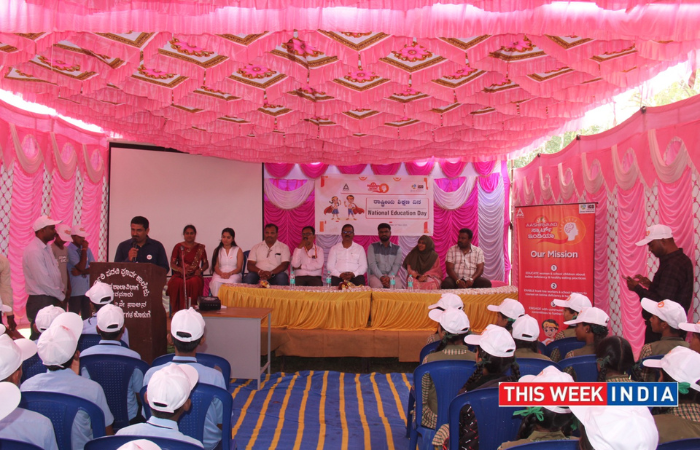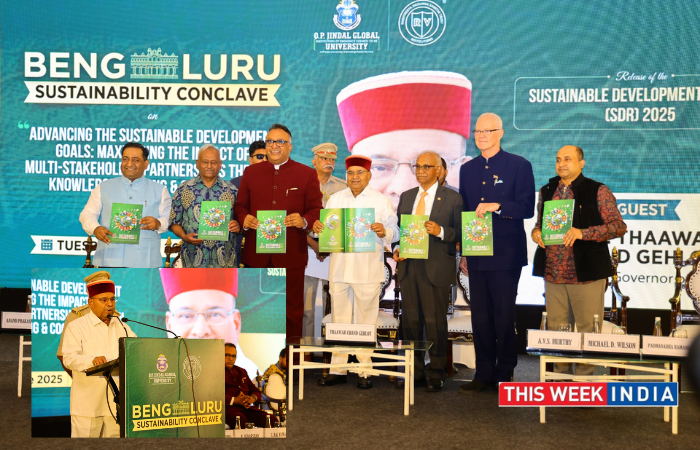Moscow, 9th June 2021 – The construction of a 300 MW nuclear power unit enabled with the innovative BREST-OD-300 lead-cooled fast reactor has begun at the site of the Siberian Chemical Combine (an enterprise of Rosatom-subsidiary TVEL Fuel Company) in Seversk, Russia’s Tomsk region (South-West Siberia). The reactor will run on mixed uranium-plutonium nitride fuel (MNUP fuel), specially developed for this facility (it is considered to be the optimal solution for fast reactors).
The power plant will make up an integral part of the Pilot Demonstration Energy Complex (PDEC) – a cluster of three interconnected unique facilities, including the nuclear fuel production plant (for fabrication and refabrication), the BREST-OD-300 power unit, and the facility for irradiated fuel reprocessing. For the first time in history, a nuclear power plant powered by a fast reactor will be built alongside closed nuclear fuel cycle servicing enterprises on one site. After reprocessing, the irradiated fuel from the reactor will be sent for refabrication (i.e. reproduction into fresh fuel), thereby giving this system the means to gradually become practically autonomous and independent of external resources supplies. PDEC is constructed in the framework of Rosatom’s “Breakthough” project, aimed at development of the new technological platform for the nuclear industry.
“The nuclear power industry’s resource base will practically become inexhaustible thanks to the infinite reprocessing of nuclear fuel. At the same time, the future generations will be spared the problem of accumulating spent nuclear fuel. The successful implementation of this project will allow our country to become the world’s first owner of the nuclear power technology which fully meets the principles of sustainable development in terms of environment, accessibility, reliability, and efficient use of resources. Today, we reaffirm our reputation as a leader in world progress in the nuclear technologies, that offers humanity unique solutions aimed at improving people’s lives,” said Alexey Likhachev, Director General of Rosatom.
The design of the BREST-OD-300 lead-cooled reactor is based on the principles of so-called natural safety. The features of the reactor made it possible to abandon the melt trap, a large volume of support systems, and also to lower the safety class of the non-reactor equipment. The integral design and physics of the reactor facility make enable to exclude accidents requiring evacuation of the population. In the future, such installations should not only enhance the safety of nuclear power, but also make it more economically competitive in comparison with the most efficient thermal power generation (in particular, steam-gas technology).
“The implementation of the ‘Breakthrough’ project embraces not just development of innovative reactors, but also introduction of the new generation technologies of nuclear fuel cycle. Firstly, this includes production of dense nitride MNUP fuel, which will ensure the efficient operation of a lead-cooled fast reactor and consist entirely of recycled nuclear materials such as plutonium and depleted uranium. Secondly, this means more efficient and economically attractive radiochemical technologies for the processing of irradiated fuel and waste management. Taken together, they will make the nuclear power of the future in fact renewable with a practically waste-free production chain,” said Natalia Nikipelova, President of Rosatom’s TVEL Fuel Company.
Rosatom Director General Alexey Likhachev, Tomsk regional governor Sergei Zhvachkin, Kurchatov Institute President Mikhail Kovalchuk, IAEA Director General Rafael Grossi, and other Russian and non-Russian guests attended the event. Russian Academy of Sciences President Alexander Sergeev and OECD Nuclear Energy Agency (OECD NEA) Director General William Magwood sent in video addresses.
According to the planned timeline, the BREST-OD-300 reactor should start operating in 2026. A fuel production facility will be built by 2023 and the construction of an irradiated fuel reprocessing module is scheduled to start by 2024.









